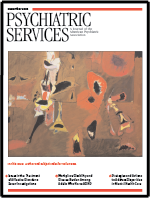The Number We End Up With
Have you ever wished someone you loved would die?" "Have you ever cheated on your husband?" "Is it possible to love two people at the same time?" Anjou Lovett, a 30-something obsessive-compulsive enumerator, tries to make sense of her topsy-turvy life by injecting such questions at the end of her census form. Periodically deserted by a philandering father when she was growing up in Glyn Neath, "a time-encapsulated hamlet outside Philadelphia," she repeatedly experiences loss in the abandonment of an unfaithful lover, his death, her mother's death, and, with the unraveling of her own sanity, the loss of her job.
Anjou also finds comfort in crunching numbers. Accounting for all her gains and losses, she notes that her father's phone will ring as few as seven but as many as 30 times before he picks up, that it is 17 years since they have spoken to each other, that it is eight years since her sister has moved away with her husband, that she has loved two men wholeheartedly and desperately, and that she has had three close friends, including her dog. She stops counting for only one person, her married lover, saying, "In the three-dimensional presence of Quinn's spiraling and buzzing mind, I didn't need numbers." But her psychiatrist isn't impressed, saying, "What do you want, Anjou?" Anjou admits that she isn't getting what she wanted, but "love is devastating by nature." In the end, Anjou finds her own peace with the help of friends and family as well as the courage to confront the sources of her conflicts.
Philadelphian Beth Goldner gives a bittersweet take on loss, infidelity, sorrow, grief, and healing. Philadelphia residents get an extra added bonus of familiar scenes from the city as well as the small, quiet "hamlets" that surround it. One cannot help but feel for Anjou as she tries to keep afloat in her sea of grief, insecurity, and crazy behavior and later in her search for forgiveness and acceptance. The supporting characters also make the universality of loss more tangible. In a seemingly peaceful town, each home reveals its own sense of loss and the ways in which this has been endured or resolved.
The fact that Anjou sees a psychiatrist seems incidental, despite Goldner's experience writing for a medical journal. All we know about David is that he is 32 years old, will not disclose personal information, and—as revealed later in the book—might have given Anjou a misdiagnosis. However, the course of events may open one's mind to how a similar situation can be handled in real life and how we as clinicians can open our doors wider to our grieving patients to make them realize that we can be part of their quest for answers, their sense of self, and, most of all, their healing and growth. The book can also be recommended for patients who have experienced grief and loss in their lives, and Anjou's questions could spur interesting discussions.
Dr. Napalinga is the assistant chief resident in psychiatry at the Albert Einstein Medical Center in Philadelphia.



